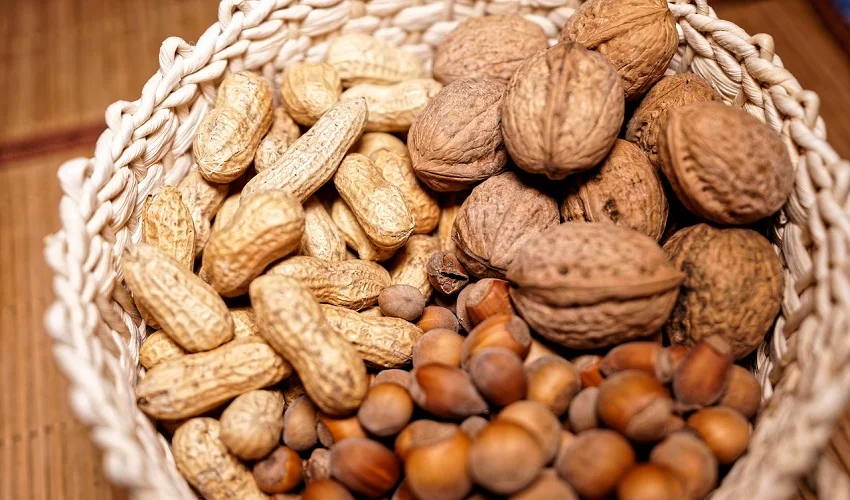What is glycemic index?
The glycemic index is a measure of how quickly a carbohydrate-containing food raises blood sugar levels. It ranks foods on a scale from 0 to 100 based on how they affect blood sugar levels. Foods with a high glycemic index (GI) are rapidly digested and absorbed, causing a sharp increase in blood sugar levels. On the other hand, foods with a low GI are digested and absorbed more slowly, resulting in a slower and more gradual rise in blood sugar levels. The glycemic index can be a useful tool for managing blood sugar levels, particularly for individuals with diabetes or those looking to control their weight.
Why is glycemic index important?
The glycemic index is an important measure of how quickly carbohydrates in food raise blood sugar levels. It ranks carbohydrates on a scale from 0 to 100, with higher values indicating a faster rise in blood sugar. Understanding the glycemic index can be particularly important for individuals with diabetes or those looking to manage their blood sugar levels. By choosing foods with a lower glycemic index, such as sweet potatoes, individuals can help stabilize their blood sugar levels and maintain better overall health.
How is glycemic index measured?
The glycemic index measures how quickly carbohydrates in a food raise blood sugar levels. It is determined by comparing the blood sugar response to a specific amount of the food with the response to the same amount of pure glucose. The glycemic index is expressed as a number between 0 and 100, with higher values indicating a faster rise in blood sugar levels. This measurement is important for individuals with diabetes or those looking to manage their blood sugar levels. By understanding the glycemic index of foods, one can make informed choices about what to eat to maintain stable blood sugar levels.
What is a sweet potato?
Description of sweet potato
Sweet potato is a starchy root vegetable that is known for its sweet taste and vibrant orange color. It is a popular food choice due to its versatility and nutritional benefits. Sweet potatoes have a low glycemic index, which means they are digested and absorbed slowly, resulting in a gradual rise in blood sugar levels. This makes them an excellent choice for individuals with diabetes or those looking to manage their blood sugar levels. Additionally, sweet potatoes are rich in fiber, vitamins, and minerals, making them a nutritious addition to any diet. Whether baked, roasted, or mashed, sweet potatoes are a delicious and healthy option that can be enjoyed in a variety of dishes.
Nutritional value of sweet potato
Sweet potatoes are not only delicious but also packed with essential nutrients. They are a great source of dietary fiber, which aids in digestion and helps maintain a healthy weight. Sweet potatoes are also rich in vitamins A, C, and B6, as well as minerals like potassium and manganese. These nutrients play a crucial role in supporting immune function, promoting healthy skin, and maintaining optimal brain function. Additionally, sweet potatoes have a low glycemic index, making them a suitable choice for individuals with diabetes or those looking to manage their blood sugar levels. Incorporating sweet potatoes into your diet can provide numerous health benefits and contribute to overall well-being.
Different types of sweet potatoes
Sweet potatoes come in various types, each with its own unique characteristics. Some of the different types of sweet potatoes include the orange-fleshed sweet potato, which is rich in beta-carotene and has a sweet flavor. There is also the purple sweet potato, known for its vibrant color and antioxidant properties. Another type is the white sweet potato, which has a milder taste and creamy texture. Each type of sweet potato offers a different culinary experience and can be used in a variety of dishes, from roasted sweet potato fries to mashed sweet potato casserole. Whether you prefer the classic orange variety or want to try something new, sweet potatoes are a versatile and nutritious addition to any meal.
Understanding glycemic index
Definition of glycemic index
The glycemic index is a measure of how quickly a carbohydrate-containing food raises blood sugar levels. It ranks foods on a scale from 0 to 100 based on their effect on blood sugar levels. Foods with a high glycemic index (GI) are quickly digested and absorbed, causing a rapid rise in blood sugar levels. On the other hand, foods with a low GI are digested and absorbed more slowly, resulting in a slower and more gradual increase in blood sugar levels. The glycemic index is often used as a tool to help manage blood sugar levels, especially for individuals with diabetes or those looking to control their weight.
Factors affecting glycemic index
The glycemic index of sweet potatoes can be influenced by several factors. One important factor is the cooking method. Boiling sweet potatoes tends to result in a lower glycemic index compared to baking or frying them. The ripeness of the sweet potato also plays a role, with riper sweet potatoes generally having a higher glycemic index. Additionally, the presence of other foods in a meal can affect the glycemic index of sweet potatoes. Consuming sweet potatoes with protein or fat can help lower their glycemic index. Overall, understanding the factors that affect the glycemic index of sweet potatoes can be helpful in managing blood sugar levels and making informed dietary choices.
Interpreting glycemic index values
The glycemic index (GI) is a measure of how quickly a particular food raises blood sugar levels. It ranks carbohydrates on a scale from 0 to 100, with higher values indicating a faster increase in blood sugar. When interpreting glycemic index values, it is important to consider that individual responses to different foods can vary. Additionally, the presence of other nutrients in a meal, such as fat and fiber, can also affect the overall impact on blood sugar levels. Therefore, it is recommended to use the glycemic index as a general guide rather than a strict rule when making dietary choices.
Glycemic index of sweet potatoes
What is the glycemic index of sweet potatoes?
The glycemic index of sweet potatoes refers to how quickly and how much a food raises blood sugar levels after it is consumed. Sweet potatoes have a relatively low glycemic index, which means they cause a gradual and steady increase in blood sugar levels. This is beneficial for maintaining stable energy levels and preventing spikes in blood sugar. Additionally, the high fiber content in sweet potatoes helps to slow down the digestion and absorption of carbohydrates, further contributing to their low glycemic index. Including sweet potatoes in your diet can be a healthy choice for managing blood sugar levels and promoting overall well-being.
How does cooking method affect the glycemic index?
The cooking method used to prepare sweet potatoes can have a significant impact on their glycemic index. Boiling sweet potatoes has been found to result in a lower glycemic index compared to other cooking methods. This is because boiling helps break down the starches in sweet potatoes, making them easier to digest and reducing their impact on blood sugar levels. On the other hand, baking or roasting sweet potatoes can increase their glycemic index. This is because these cooking methods cause the natural sugars in sweet potatoes to caramelize, resulting in a higher glycemic index. Therefore, individuals who are concerned about their blood sugar levels may want to consider boiling sweet potatoes as a healthier cooking option.
Comparison of glycemic index with other carbohydrates
Sweet potatoes have a relatively low glycemic index compared to other carbohydrates. The glycemic index is a measure of how quickly a food raises blood sugar levels. Sweet potatoes have a glycemic index of around 50, which is considered low. In comparison, white potatoes have a glycemic index of around 80, making them higher on the glycemic index scale. Other carbohydrates, such as white bread and white rice, also have higher glycemic indexes. This means that sweet potatoes are a good option for those looking to manage their blood sugar levels and maintain stable energy throughout the day.
Health benefits of sweet potatoes
High in vitamins and minerals
Sweet potatoes are not only delicious but also packed with essential vitamins and minerals. They are particularly high in vitamin A, which is important for maintaining good vision and a healthy immune system. Additionally, sweet potatoes are a great source of vitamin C, which supports collagen production and boosts the immune system. They also contain significant amounts of potassium, which helps regulate blood pressure and maintain proper heart function. With their impressive nutrient profile, sweet potatoes are a nutritious addition to any diet.
Rich in antioxidants
Sweet potatoes are a rich source of antioxidants, which are beneficial compounds that help protect our cells from damage caused by harmful free radicals. These antioxidants, such as beta-carotene and vitamin C, play a crucial role in promoting overall health and reducing the risk of chronic diseases. Consuming sweet potatoes regularly can help boost our immune system, improve skin health, and support heart health. Additionally, the high antioxidant content in sweet potatoes may also have anti-inflammatory effects, which can further contribute to their health benefits.
Potential role in blood sugar management
Sweet potatoes have a potential role in blood sugar management. Due to their low glycemic index, they are considered a good option for individuals with diabetes or those looking to control their blood sugar levels. The glycemic index of sweet potatoes is lower compared to other starchy vegetables, which means they cause a slower and more gradual increase in blood sugar levels. Additionally, sweet potatoes are rich in dietary fiber, which further helps in regulating blood sugar levels. Including sweet potatoes in a balanced diet can contribute to better blood sugar control and overall health.
Summary of key points
The glycemic index (GI) is a measure of how quickly a food raises blood sugar levels. Sweet potatoes have a low glycemic index, making them a good choice for people with diabetes or those looking to manage their blood sugar levels. The GI of sweet potatoes can vary depending on factors such as cooking method and ripeness. Boiled sweet potatoes have a lower GI than baked or roasted sweet potatoes. Additionally, the GI of sweet potatoes can be influenced by the presence of other foods in a meal. Overall, sweet potatoes are a nutritious and versatile vegetable that can be enjoyed as part of a balanced diet.
Importance of considering glycemic index
The glycemic index is an important factor to consider when it comes to sweet potatoes. It measures how quickly carbohydrates in food are broken down and absorbed into the bloodstream, affecting blood sugar levels. Sweet potatoes have a relatively low glycemic index, making them a good choice for individuals looking to manage their blood sugar levels. By choosing foods with a low glycemic index, such as sweet potatoes, you can help maintain stable blood sugar levels and prevent spikes in insulin. This is particularly beneficial for individuals with diabetes or those who are at risk of developing the condition. Additionally, the low glycemic index of sweet potatoes can also contribute to feelings of fullness and help with weight management. Therefore, understanding and considering the glycemic index of sweet potatoes is crucial for maintaining a healthy diet and overall well-being.
Final thoughts on sweet potato glycemic index
In conclusion, understanding the glycemic index of sweet potatoes is essential for maintaining a balanced diet. While sweet potatoes have a relatively high glycemic index, they also provide important nutrients and fiber. It is important to consider portion sizes and cooking methods to minimize the impact on blood sugar levels. Incorporating sweet potatoes into a well-rounded meal plan can contribute to overall health and well-being.




